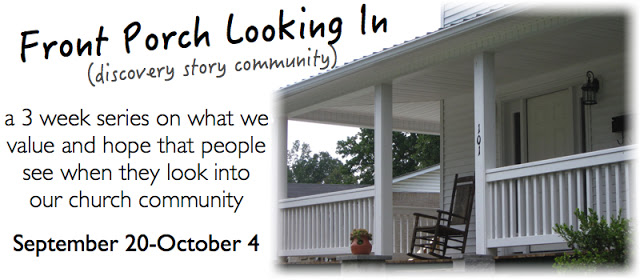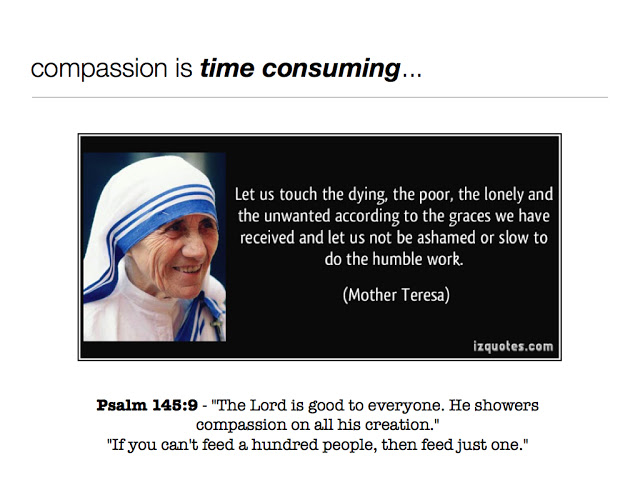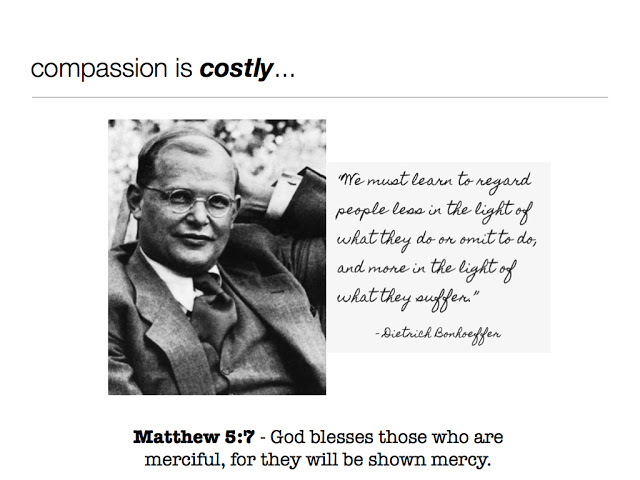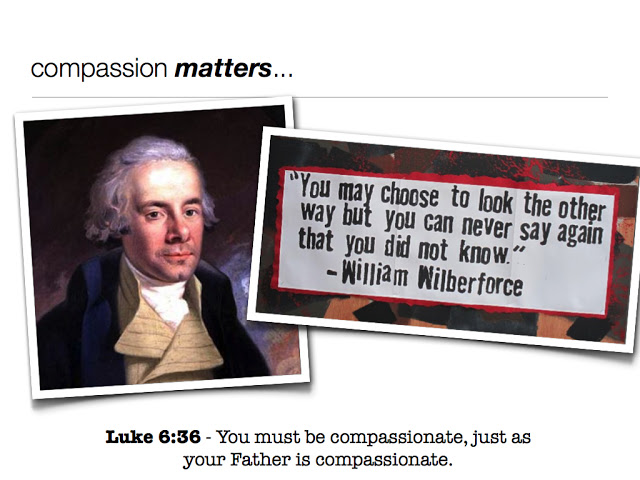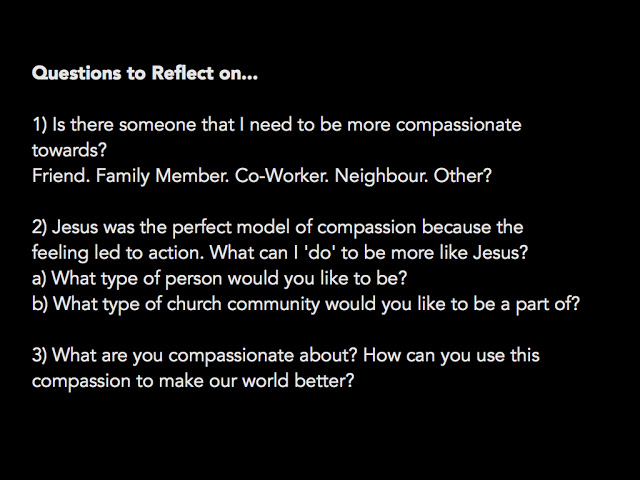
by Jonathan Manafo | Oct 3, 2015 | Sunday Conversations
We all know someone who is a great story teller. Maybe we haven’t actually given them that title, but they are the person in your social circle that gets the most air time, simply because they can make anything interesting. You might even find yourself eavesdropping on a conversation at your local cafe because one of these ‘story tellers’ is talking away and you can’t help but listen.
Some of us are more captivated with stories than others. I would consider myself a reader and movie watcher, but I have some friends who get enveloped in the story – hooked, line and sinker, with all the emotions that come with it.
Stories intrigue us. Stories excite us. Stories teach us. Stories challenge us. Stories Encourage us. Stories guide us. Some stories more than others.
At The Village we’ve chosen STORY as one of our three highlighted values. We feel like it’s what keeps us together, what leads us, what shapes our faith. Of course, not just any story, but the gospel story – the Jesus story.
If your family was like mine, the kitchen table saw lots of wear. We were around that table for hours on end. When company was over we’d hear stories from our guests; my parents reiterated stories from their past; my siblings and I would share stories of what happened during the day. For some cultures this is where identity is formed and character is built. For the church, our story and identity is also formed at a (communion) table and around a story.
In his book called,
‘From Tablet to Table’, Len Sweet says much about how stories are important to culture and to faith. Things like…
“The table is an important part of our acquaintance with God’s
story and ours”
“We don’t crave principles & props, but a story that helps
us understand the world, ourselves and God better.”
“We are stories with skin on”
In the Scripture we read about people discovering God’s story for the world. Over and over again people’s stories connect and intersect with God’s story. Perhaps that’s why we describe our value like this, “We value God’s story, we value your story and we value how those two stories come together” For some this encounter is smooth, for others it’s more of a messy exchange, but for everyone it’s like two worlds are colliding, God’s and ours. That’s where the beauty is – in the intersection, in the collision, sometimes even in the mess.
Why are we drawn to ‘this’ story, to God’s story, to Jesus’ story? Because his story is true and it changes the world. C.S. Lewis said something like this many years ago, “Now the story of Christ is simply a true
myth: a myth working on us the same way as the others, but with this tremendous
difference that it really happened:”
Paul confronted this ‘true’ story and it threw him off his horse, literally. We read about Paul’s collision a few times in Acts. Jesus got his attention, and Paul was never the same after that. He changed. He went from signing off on murders to going through hell so others could find life. His dramatic conversion story is one example of what it means for God’s story and ours to intersect.
Of course we read of others in the scripture who connect with God in amazing ways: Moses at the burning bush, Jacob at Peniel, the cripple in Mark 2 who crashed a Jesus party (literally) to see if this Jesus’ story was as true and powerful as people were saying, etc. In all of these, God’s story embraces us, moves us, draws us – He values where we come from, but loves us so much that he redirects us in a better direction.
What about you? What about us? How is our story connecting to God’s story?
What about those of us who are further along the way? Do we value others story as God values ours?
We want to be a church community who values God’s story more than anything, and who love and appreciate where people are coming from when they meet Jesus for the first time. We want to be known as a safe place, a loving community, where people can engage this amazing gospel story together with us.
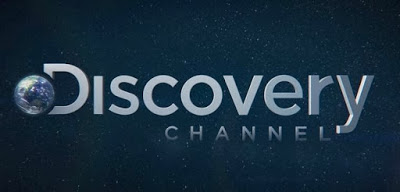
by Jonathan Manafo | Sep 25, 2015 | Sunday Conversations
Discovery is more than a channel on cable. We all have this innate desire to discover new things; a desire to learn something for the first time; or to find out the many layers to something or someone we already know.
It seems like all too often, people view their faith experience as a destination and not a discovery. We’re convinced of a truth and proceed to think that all is good because we’ve accepted that truth. But what if truth isn’t a thing but a person. We would never say that we know someone fully after meeting them just once or twice. Hence the reason why we value discovery when it comes to our faith journey.
For the next three weeks/posts, we’ll talk about what value at The Village. We’ve narrowed it down to three words, DISCOVERY, STORY, COMMUNITY. This is not because that’s all it takes to define us, but because those three words best describe our expression of becoming a community of people who follow Jesus and who live out his teaching about loving God and loving others.
Why Discovery?
When you value discovery, you also value humility (that turns into love), respect (expressed through gentleness) and learning (that forms our discipleship process).
Here’s how we word it, ‘We want you to discover God with us…and we want to continue to discover God with you.’ See how this places a healthy assumption on our faith journey, one that embraces people where they are at, while also reminding ourselves that we are never done learning and growing in our faith.
Psalm 34:8 may express this value best. King David, after sharing his thoughts about how good and powerful God is, says this, “Taste and see that the Lord is good…”. What’s he getting at? Why don’t you try God for yourself, why not discover him, and once you do, you’ll see that he is good. Kind of like Green Eggs & Ham for the Psalms. The food metaphor seems to be a perfect way to describe David’s point. Take the time to discover what God is serving, what he’s making for dinner, what’s on his plate, and see that it is ‘good’. Think about your favourite food or dish. Can you remember when it became your favourite dish? The feeling you had? The risk you took to try it? David is liking his experience to God in the same way. God is worth trying…worth discovering.
Discovery involves looking and searching. It takes effort and time to discover something. In Genesis 3, we find that God was looking for us. He enters the garden after Adam & Eve had sinned and looks for them. He asks, “Where are you?” “Why are you hiding?” He knows what they’ve done, yet he still wants to find them and be with them.
Later on in the scripture we find King Solomon receiving instruction to look for God…to discover God. “If you seek him, you will be found my him.” (1 Chronicles 28) As King of Israel, his most important role is to discover God.
Of course in the gospels we Jesus sharing stories, dropping clues, creating metaphors, all for the purpose of discovery. In Matthew 13, in one of Jesus’ parables, he says this, “The kingdom of
heaven is like treasure hidden in a field. When a man found it, he hid it
again, and then in his joy went and sold all he had and bought that field. “Again, the kingdom of heaven is like a merchant looking for
fine pearls. When he found one of great value,
he went away and sold everything he had and bought it.” Jesus says that God and his Kingdom are worth discovering; it’s worth the chase; ‘He’ is worth the effort and the journey. The person who finds the treasure happened to stumble upon it. The person who finds the pearl was looking for it. Both, however, discovered something so valuable that they did everything they could to obtain it. Are we that passionate about discovering God through Jesus? Are we willing to keep moving forward to discover all that God has for us? And possibly more important, are we patient enough with those that are just starting this journey, inviting them to discover God with us?
What do we discover?
– We discover Forgiveness, Grace, Mercy, Redemption, Love, Generosity, etc.
– We discover Community
– We discover Neighbours…in a different light then we’ve seen them before.
– We discover that everyone we meet eyes with (the family on our local street, the refugee escaping his home land, and the foreigner who we disagree with) all matter to God.
– We discover God’s story, with all chapters leading to Jesus.
– We discover a new mission…to share the ‘tastiness’ of God with others.
Back to your favourite dish. Do you discover what you love and then proceed to just make it for your sole pleasure? Or do you learn how to make the best version of your favourite food so you can serve it at your next neighbourhood or family meal?
At The Village we value Discovery. We want you to discover God with us…and we want to continually discover God with you.

by Jonathan Manafo | Jul 25, 2015 | Sunday Conversations
A few people from
The Village helped Christine’s Closet during this year’s prom season. Read the summary below and be inspired by what a few people can do to put a smile on the faces of grade 8 girls…
Dress day was an absolute success this year! Thank you to everyone who donated anything from dresses, shoes, accessories or their time to help with dress day this year, your hard work and donations do not go unnoticed. To give you a little bit of a background Christine’s Closet is an extension of another local charity, Building Bands Canada. Building bands Canada was founded in 2008 by Christine Newman and Laura Gardner. This amazing charity provides music lessons for at risk youth in schools, detention centres, alternative learning centres and more. While providing these music lessons in a school a few years back the topic of prom came up and how some of the girls didn’t have dresses to wear. Christine and Laura saw a need and immediately met it, Christine’s Closet was born.
Every year Christine’s Closet asks for donations of prom dresses and accessories and then set up shop in a school in Oshawa where girls come from surrounding schools to shop for a dress just for them.
The girls were so excited to have such amazing selection this year and each girl was able to leave with a dress that made them feel special.
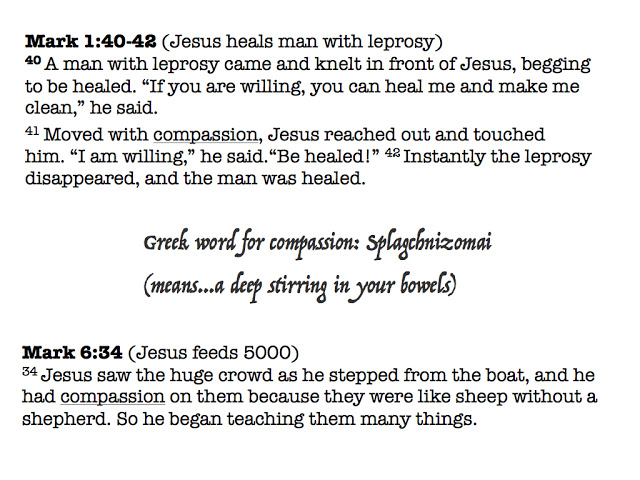
by Jonathan Manafo | Jun 3, 2015 | Sunday Conversations
(these are some of the highlights from Brad Clarke’s talk at The Village on May 31)
After our church community (THE VILLAGE) hosted a community event on the previous Saturday, we felt the best way to follow up on Sunday would be to talk about Compassion…
Think about all the messages we hear and see via social media – random nothing’s, family pictures, important quotes, advertisement, sports news, important news, and more random info that we really don’t need to know. What we do see a lot of in our Twitter and FB feeds are ‘selfies’ – pictures taken with our own hands/phones to tell people what we’re doing at that very instance.
One positive thing that social media has really been a catalyst for is the raising of awareness for wonderful justice causes (i.e. Nepal Earthquake, ALS Ice Bucket Challenge, etc). One problem or question may be that with all the awareness, are we actually doing something? It’s one thing to communicate compassionate statements in 140 characters, but quite another to turn that feeling of compassion into action.
Jesus was the best example of what it means to actually ‘show’ compassion – his life was overflowing with compassion.
Three things that compassion will require from you when it becomes more than a feeling…from three historical figures that put their money where their mouth was…
– – – – – – – – – – – – — – – – – – – – – – – – – – – – – – – –
small(er) group questions:
Do you think the rise of Social Media has helped or hindered in regards to showing compassion for others? Or is it both? How has it helped? How has it hindered?
Is there someone I need to be more compassionate towards? Friend, Family Member, Co-Worker, Neighbour?
Jesus was the perfect model of compassion because what he felt didn’t stay in his head or heart, but it led to action. What can I do to be more like Jesus?
– What kind of person looks like him?
– How can our church look more like him?
What is stirring in your gut (bowels:)? What ‘moves’ you towards compassion? Is there a ‘holy discontent’ in you that can or will drive you to action? (e.g. human trafficking, clean drinking water, homelessness, battered women in danger, etc.)
How can God use you to make our world better?

by Jonathan Manafo | May 26, 2015 | Sunday Conversations
Have you ever run out of gas? If so, I know how you feel. Besides feeling a little dumb, you also feel stuck; either on a highway or some random road, and if you as unlucky as I was, not close to a gas station.
Have you ever been locked out of your house? Same kind of feeling – stuck. My nephew was locked out of his uncles house a few weeks ago while visiting Montreal. He had one thing to do while everyone was out running errands – watch the dog (who was also a guest that day). Something attracted him to walk outside, that would be the trampoline. He stepped outside (underdressed) to play around for a minute or so. When he decided to go back in, he realized the door was locked. He had two worries, one was that his dog would pee in his uncles house, the other was that he would freeze (it was in the lower single digits, celsius, and he was only wearing shorts and a t-shirt). He was ‘stuck’ outside for 2 hours.

I’m sure you’ve been placed on hold from time to time. We call an office and either half way through the conversation or even before we get started, we are asked to hold. As polite as the receptionist sounds, we are still left with a decision, do we wait, do we hang up, do we call back? Just like running out of gas and locking yourself out, being on hold feels like your stuck – waiting for ‘pause’ to turn into ‘play’.
What happens when life gets put on hold? When you feel like you should be moving forward, you are instead stuck in your tracks. You get ‘the call’ or ‘the letter’ that puts everything to a halt – those become really tough seasons to get through. We want to look for silver linings, but if we’re honest, the grey clouds are lined with even darker grey lines.
U2 wrote these lyrics a few years ago…
You’ve got to get yourself together, you got stuck in a moment, and you can’t get out of if
Don’t say that later will be better, you got stuck in a moment, and you can’t get out of it
Acts 27 & 28 are about yet another stop along the way in Paul’s journey to Rome. We know by this point in the story that Paul is on his way to Rome – Jesus says he’ll get there and he most definitely wants to get their too.
Even though the accusations from the previous chapters have been dropped (thanks to Festus & Agrippa) Paul still has an appointment with Caesar. He asked for one, so he’s getting one. This get’s him on a ship with over 200 other prisoners on its way to Rome.
To make a long story short (which Luke doesn’t do in Acts), Paul and the crew get stuck along the way. Paul advises the leaders and passengers to stay at the Good Harbour (Fair Havens) in Crete. It’s storm season and Paul thinks it’s best to hold off, but they don’t want to. You know how it is? You’re so determined to get ahead that you unwisely try to push forward, even when the risks are too great. Wouldn’t you know it, shortly after they set sail, the bad weather hits. Luke describes the 14 day period as so dark that you couldn’t see any stars at night or the sun in the day. Somehow, after throwing much cargo off the ship, they manage not to sink. After the weather finally passes and they feel like they just might make it, they hit a reef and are stuck quite a ways off shore. Many days before, Paul had a dream that every one would live, but the boat would be a write off. With no boat left they all decide to swim to shore. Paul’s dream comes true, they all make it to shore.
One problem, the shore they hit wasn’t Rome, it was Malta. Think about this for a minute. Paul’s long journey, including flogging, interrogation, prison, persecution, debates and bad weather ends not at Rome (yet) but at Malta. Get this, they were STUCK in Malta for 3 months. What happens in Malta teaches us something, both about Paul and about us.
This crew of prisoners were treated very well by the natives of this island. The Maltese were hospitable to Paul and the rest of them. Paul’s understanding of love and grace are expanded by the Maltese. Their behaviour affirms in Paul what it means to be hospitable, even or especially, to those who are not like you. There was no reason for the Maltese people to help them, but they did. They kept them warm by a fire, found them food and found them a place to rest.
Something else happened on this Island. Paul wasn’t only served by the Maltese, he served them. Both with chores as well as gifts of healing and helps. Paul healed many people on the island, which of course communicated the power of Jesus that Paul possessed.
What’s Luke trying to tell us with this story?
Even though Paul had a destination in mind, he didn’t wait to get their to use his gifts. He realized that even though he wasn’t in Rome, God cared about these folks too, so he showed them God’s love through healing and help. He may have been stuck, but he wasn’t going to let it slow down the calling on his life. The purpose of Paul getting to Rome was to share the gospel with gentiles. Here he is stuck with…more gentiles…so he helped and healed in the name of Jesus.
Too often we’re so stuck on our goal – on the place we think we’re supposed to be and can’t see the opportunity that’s right in front of us. When you’re stuck, you can pray, “God, help me, get me out of here.” but you can also pray, “While I’m here, maybe you want to use me?”
Is it possible that God wants to use our STUCKness for his purpose. I’m not saying that he gets us get stuck (although he may), but I am saying that instead of complaining or twiddling our thumbs (like we do when we’re on hold with a call) we can ask God to use us where we are – in the present moment. Sometimes it’s easier to wait for the next step than it is to be creative in your present circumstance.
Jeremiah 29:11 says this, “I know the plans I have for you…plans to prosper you and not to harm you…plans to give you a hope and a future.” These words were given to Israel while they were in Exile. They were stuck, they were on hold, they were going nowhere fast, yet God reminded them that even though they feel stuck, he is still pulling them forward. Also while in Exile God tells Israel to pray for the peace and prosperity of their city (Babylon). Pray for a place that they don’t even want to be in? Pray for neighbours that they never wanted to live beside? What’s the deal with that? Even though we think we’re stuck and have no where to go, we can still live out our God-given calling and make a difference where we are. Don’t lose the dream God gave you – don’t forget about the future God is calling you to – but also don’t miss the opportunity to live, love and serve in the moment and the place where you find yourself.
Think about this…
– People who follow Jesus should never worry about being on HOLD
– God’s purpose follows us into the waiting room
– Keep living, serving, giving and being who God called you to be…even when you’re stuck…even when you’re on hold
– You’ll eventually reach your potential, as Paul did, but in the meant time, serve God in Malta
– – – – – – – – – – – – – – – – – – – – – – – – –
small(er) group questions:
Any funny stories about running out of gas or getting locked out of your house?
Running into road blocks and getting stuck seems to be a theme in these last few chapters of Acts. Do you think it’s something we should get used to?
Is it fair to say that Paul learned about hospitality from the Maltese people? Do you think a light went on about how important it is for followers of Jesus to treat people well…especially those who are different?
How can hospitality communicate the best of humanity and the best of God’s story?
Even though Paul hit yet another road block, he served and healed and helped while in Malta. What does that teach us about when we’re stuck in a moment and can’t get out of it?
– Can we pray, “God, this sucks, but maybe you want to use me here, in this place, with these people.”?
How does this verse from Jeremiah resonate with you? “I know the plans I have for you…plans to prosper you and not to harm you…plans to give you a hope and a future.”

by Jonathan Manafo | May 20, 2015 | Sunday Conversations
There are some stories worth repeating – we would agree that the good stories should be retold over and over again. You’ve probably been at a party and one of friends said to another, “Hey man (or girl), you gotta tell everybody that story about _______”. As they proceed to share it, you wish you had a story as good to share.
 Good stories have always been repeated. Good/Popular songs get played on the radio over and over, Good movies get watched, rented or downloaded more than other movies. And sitcoms or tv dramas show reruns for years to come.
Good stories have always been repeated. Good/Popular songs get played on the radio over and over, Good movies get watched, rented or downloaded more than other movies. And sitcoms or tv dramas show reruns for years to come.
For example, the Beatles song, ‘Yesterday’ has been played more than 7 million times on the radio (this doesn’t count the internet play it gets). Seinfeld has made more $3 billion in repeat fees (and 1/2 of that went to Jerry:). Starwars IV (the first to come out) is the 2nd most watched movie on TV reruns.
If you take the time to read through the whole book of Acts (as we at The Village have been adventurous enough to do), you’ll notice that one story gets repeated a few times. The story I’m referring to is Paul’s conversion. As Luke lays out what makes it into his second volume (his gospel being his first volume), he chooses to include Paul’s conversion story three times. Acts 9, 22 and 26. They’re all basically the same, but set in a different context. In Acts 9 we find out that this Pharisee who was responsible for Stephen’s death just a couple of chapters before has had a complete transformation. In Acts 22, Paul is defending himself from some accusations (which is a normal thing for Paul). In Acts 26 Paul is once again defending himself, and in this current hearing with King Agrippa begins to share who he used to be (a fundamental religious Pharisee) and how he became a follower of Jesus who is now called to share this new gospel with the world.
We enter this scene with Governor Festus trying to figure out if Paul should be convicted of anything or if he should be let go. He’s been accused of blasphemy from the Jews. Festus welcomes King Agrippa and his sister Bernice to be part of the discussion and perhaps write a letter to Caesar to be sent with Paul.
With King Agrippa wanting to hear from Paul, Paul takes this opportunity to share his (conversion) story (Acts 26). Here are the parts of his story that Luke wants us to hear…again…
Paul ‘used to be’ obsessed with putting an end to the early church movement. He was instrumental in putting Jesus’ followers in prison, and of course ensuring that many of them would die. Think about the things people are ‘obsessed’ with today: sports, gaming, netflix, etc. Paul’s obsession was watching early Christians being stoned (Acts 7). But something clicked in Paul – he realized that the hope he had in God was fully realized in Jesus. The people he was trying to stop were the ones who discovered God’s hope for real – Jesus. Paul couldn’t get past Jesus, until of course Jesus got his attention.
In Acts 26:12-18, Paul shares the heart of his conversion story. He tells us that Jesus got his attention, Jesus woke him up, knocked him off his horse (literally). In Paul’s conversion we see three things that change with Jesus: blind eyes are opened, darkness turns into light, and we are no longer are under Satan’s power, but God’s.
When you look closely, Paul’s story is more about ‘calling’ than it is about ‘conversion’. It’s clear that God didn’t get Paul’s attention simply for him to change churches…or synagogues, he changed him so that Paul could make a difference and share this story with the world. Jesus never saves us to sit, he saves us to serve. Paul’s big moment on that Damascus road turned into so many more moments where God used him.
How about you? Has God’s transformation in your life given you the desire to put a towel over your arm and serve? As grateful as you are and should be about God’s forgiveness and grace, have you allowed Him to turn your conversion into a calling? What are you called to? Who are you called to?
This last part of Acts 26 may be my favourtite. First, Festus tries to say that Paul is crazy. In Paul’s return comments, he appeals to King Agrippa and asks if he believes. King Agrippa’s response is humourous. Here’s the exchange…
Agrippa says, “Do you think that in such a short time you will persuade me to be a Christian?”
Paul’s answer is classic, “short time or long I pray to God that you and all who are listening to me today may become what I am, except for these chains”. (love the inclusion and joke about the chains)
After all that Paul has gone through to get a ticket to Rome, he potentially blows it with this comment. Why? Because he really does believe in what he’s preaching. He really does want people to discover Jesus as Lord. He really does believe that everyone needs God. So he sees an opportunity to lead a King to ‘The King’, and he takes it and makes the most of it.
From what we see in Acts, Paul probably used his story many times. He wanted others to find God too. He wanted others to be awoken to who Jesus was and is.
Here are a few questions to think about…
– What
did…or is…God saving you from?
What
is…God calling you to?
– What
stories are you keeping to yourselves?
What story should you
be sharing?
– If
you’ve got no moment to look back on…no turning point…how about asking
God to get your attention…whatever way he needs to get it?
– – – – – – – – – – – – – – – – – – – – – – – – –
small(er) group questions:
What’s one thing you say about your self over and over again? A trait you think describes you well that something people would like to know?
What’s one movie or show that you can watch over and over and not get sick of?
Paul talks a lot about who he used to be. Is there a past part of you that your thankful is now in the past? You feel like sharing?
We tend to think that Jesus stands at our door knocking and won’t come in unless we open the door. (I think Rev 3:20 lends itself to that) However, what do we make then of Paul’s experience. It seem like Jesus barged into that door. He got Paul’s attention. He woke him up.
– Is it one or the other…or both/and?
God’s desire seems to be two-fold: He wants to change us and he wants to use us. How long does it take to go from step 1 to step 2? Or can God use us while we’re still ‘becoming’ Christians…while the change is still in progress?
Paul took a risk in answering King Agrippa the way he did (Acts 26:28-29). What was it about Paul that gave him such confidence? Can we have a similar confidence while still being true to ourselves and not looking too fanatical in front of friends?
What do you need to be praying for tonight?



